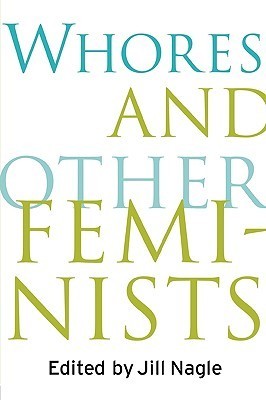
Whores and Other Feminists
Book Description
Feminism and prostitution collide in a thought-provoking exploration of society's hidden struggles and desires. Through a series of powerful essays, Jill Nagle challenges convention, celebrating the voices of sex workers and reclaiming autonomy in a world filled with stigma and misunderstanding. Each chapter is a bold confrontation, weaving personal narratives with fierce advocacy, illuminating the complexities of choice, agency, and power. As the lines between empowerment and exploitation blur, how can we redefine what it means to be a feminist in a world that often holds women hostage to its own definitions?
Quick Book Summary
"Whores and Other Feminists" edited by Jill Nagle offers a provocative anthology of essays that confront and redefine the intersections between feminism and sex work. Through personal narratives and critical reflection, the book highlights the voices of sex workers themselves, challenging mainstream feminist perspectives that often marginalize or stigmatize them. By focusing on lived experiences, the contributors reclaim the terms of empowerment, agency, and sexuality suppressed by a society eager to judge the choices of women in the sex industry. Nagle's collection exposes the nuances of power, oppression, and autonomy, revealing the contradictions and possibilities inherent in feminist thought. Ultimately, it calls for a more inclusive feminism that listens to, believes, and stands alongside sex workers, offering pathways towards solidarity and genuine liberation.
Summary of Key Ideas
Table of Contents
Challenging Feminist Narratives Around Sex Work
The book opens by challenging standard feminist narratives that have historically painted sex work as inherently exploitative or degrading. Through the essays, readers encounter a critical examination of second-wave feminist approaches, which often view prostitution solely as victimization. Nagle and her contributors push back against this binary, illustrating that sex work can be a site of agency, negotiation, and choice, albeit within a complicated social context. By foregrounding sex workers' real voices and experiences, the collection demands a reconsideration of who gets to speak for whom in feminist spaces.
Agency and Autonomy in Sexual Labor
Central to the anthology is the concept of agency and autonomy in sexual labor. The contributors share diverse stories, revealing how their engagement in sex work is sometimes a pragmatic choice, at other times a deeply personal or political act. These narratives complicate simple assumptions, showing how agency is not absolute but often shaped by socio-economic factors. The book carefully balances the acknowledgment of structural oppression with the imperative to recognize the active, resourceful decisions made by those in the sex industry.
Destigmatizing Sexuality and Reclaiming Power
A major theme in the collection is the destigmatization of sexuality and the reclamation of power. The essays confront the societal impulse to shame or silence sex workers, exposing how this stigma serves to disenfranchise women further. By naming and repurposing the language used against them—such as the word "whore"—the contributors assert ownership over their identities and experiences. This act of reclamation both personalizes and politicizes the fight for sexual liberation and bodily autonomy.
Intersection of Class, Race, and Gender in Sex Work
Interwoven throughout the text are explorations of how class, race, and gender impact experiences within the sex industry. The book refuses to treat sex workers as a monolith, instead detailing how social and economic structures shape opportunities, risks, and perceptions. Contributors describe the unique struggles faced by marginalized groups, as well as the solidarity that can emerge through shared oppression. These insights expand the conversation beyond an abstract debate and ground it in the realities of intersecting identities.
Towards Inclusive Feminist Solidarity
Ultimately, "Whores and Other Feminists" advocates for a broader, more inclusive feminism—one that genuinely listens to and supports the voices of sex workers. The collection rejects simplistic binaries of victim versus agent, or empowerment versus exploitation. Instead, it encourages readers to grapple with complexity, embrace ambiguity, and forge alliances across lines of difference. This vision for feminist solidarity centers on acceptance, mutual respect, and the fight for autonomy, both within feminism and in society at large.
Download This Summary
Get a free PDF of this summary instantly — no email required.





